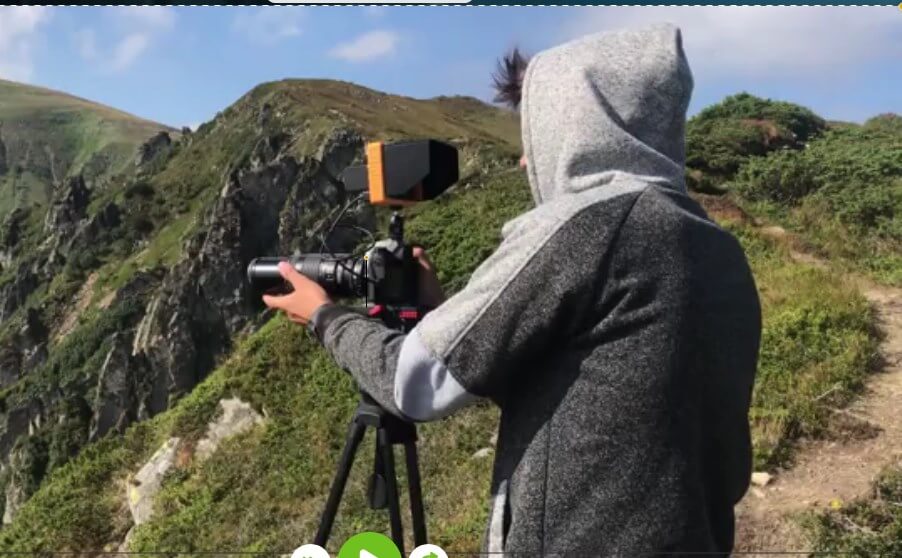Online Film School Free » Documentary Filmmaking Course » Documentary Filmmaking – Introduction
Documentary Filmmaking
Table of Contents
Toggle
Documentary filmmaking offers a powerful way to tell real stories, shed light on important issues, and captivate audiences with compelling narratives. Many aspiring filmmakers, especially those with experience in videography, weddings, or freelance projects, find themselves drawn to this medium but are unsure where to begin.
Getting started often means self-funding the first project, learning the craft through hands-on experience, and figuring out how to turn a passion for storytelling into a sustainable career. But how does one find the right story? What are the best ways to approach production with limited resources? And perhaps most importantly, how can a documentary be monetized to support future projects?
This article explores the essential steps to launching a career in documentary filmmaking, from discovering impactful stories to securing funding and distribution. Whether you’re an experienced videographer looking to transition into the field or a newcomer eager to make your first film, these insights will help you take the first steps toward bringing meaningful stories to life.
What is a documentary film?
The growing popularity of documentary films has created the mid-80s many styles and voices of documentary films. That is why defining what is a documentary film is not as easy as it sounds. In this Documentary Filmmaking Course we try to include as many documentary genres as possible., but I also recommend you to check the new Evolution of Cinema course to deepen your knowledge and understanding of the genre in the industry context. In the 30’s it was defined as “the creative treatment of actuality”. This definition covers a lot. ” Creative treatment” suggests that doco contains an aspect of fiction in it, and “actuality” means that the story does represent a certain reality that exists or existed in the real world. The documentary need also to talk about people that existed in real life. It can’t be about made-up characters.
To really understand the documentary genre, you need to learn it’s history. This is why I’ve created two lessons about the history of documentary films. By learning the development stages those films went through, you can find the common ground from the first films, known as “actuality films”, through the non-fiction story and the educational/journalistic style.
Documentary films and the point of view
Another element that repeats itself in every documentary film is the point of view of the director. The truth is that there is no such thing as an objective film. The only responsibility we can be fixed to a documentary filmmaker is to be fair to its object (some would argue even that). That is to let the subject that you document a chance to express itself and to be treated with respect.
If you look at the development of the documentary films, you can see that the definition keeps changing or adjusting itself. What it means is the the ones who defines what documentary films is are the documentary creators.
I don't believe that documentary is an objective reality, and fiction is all illusion.
Mike Mills Tweet

The movie “Roger and Me” by Michael Moore is an excellent example for that. Michael Moore is a documentary filmmaker that keeps challenging the objectivity of documentary film. He claims that what he shows in his films is real, but admits that the voice-overs are his interpretation of the facts. The truth is that if he showed the facts, it wouldn’t be interesting. The reality is not so attractive. Not enough to copy it without making a commentary.
Now:
You must understand that director that is less provocative than Michael Moore also give interpretations from their perspective to the facts that they’re talking about. That’s why most of the documentaries are made with the director’s narration. The truth is that a documentary film can not show an objective world. Once you frame an absolute reality into the shot, you’ve set your point of view on the object. How is that different from staging a scene in fiction? Once you’ve decided what goes into the frame and what’s not, this is your point of view. How can you objectively choose when to turn on and off the camera?
Quick tip:
Many film schools will tell you that an honest documentary filmmaker needs to show all the sides of the subject. That makes sense, but be careful! Most topics are not as simple as black and white, and there are a lot of greys. It would help if you found the grey area with the blackest colors and the white colors, but don’t attempt to give everyone sides. Sometimes there are just too many
First Tip: Be fair to your subject – but also to your film
Some may say that if the photographed object is OK with you shooting him in certain situations, then the decisions about what’s getting in the film and what does not are yours alone. Some feel that the director should discuss with his object about what can and can not enter the movie. I don’t believe in that.
But here is the kicker:
What is essential is that the film will turn out good, not your film subject.
Eventually, you’ll have to trust your instincts. You shouldn’t be lying about your subject to make the movie more interesting, but if your issue of the film wants to be part of the film decision process of the film, that might lead to trouble.
2nd Tip: Find an original subject for your film!
To find a good story for a documentary film, I think it is more complicated than finding a fiction film. Of course, there are repeating themes (especially if you are in film school): your grandmother, that raised you as if you were her child, this guy that has to deal with cancer or other terminal illness. In Israel, we have lots of films about Palestinian and Jewish problems. The problem with those issues (vital as they are) is that they all been done too many times. So if you’ve been going to film about those issues, you better find a way to make it breathtaking and original. For example, the film “Freeheld” deals with cancer, but it also tells the story of a woman dying of cancer who wants to leave all she has to her spouse, Stacey. She encounters difficulties because they are not husband and wife, and together, they fight for what’s right according to their point of view. Your movie will be original if you will find your voice and express it in the film.
You know, making a documentary is one of discovery, and like writing a story, you follow a lead and lead you to something else and then, by the time you finish, the story is nothing like you expect
William Shatner Tweet
Most documentaries are about the present or past, but there are no strict rules. There are films like The War Games, which is a highly recommended documentary for fans of the genre, from 1965, that describe a possible future: The Film takes all the terrible facts of the Second World War and uses them to describe a nuclear war in London in the future. Whatever period you’ll choose to talk about, it always has to revolve around something that happens in life.
3rd Tip: Start with research
Every good film will start research. The documentary research job purpose is to learn the subject of the film. Many amateurs are starting to film their documentaries without any research and get lost in the middle. Even if you are shooting a personal documentary, research is a must. Do a good research and keep finding out how it fits with the Documentary Storytelling
How to review a documentary film?
Another vital point to talk about it in the context of Documentary Films is how do you criticize a documentary. It’s hard to say stuff like the subject is not attractive. I think that when reviewing the documentary, you do not judge the issue but how the director introduced it. The director must investigate and show the character he chose to shoot and, even more important, why he chose them.
So what can you learn from it about making a documentary?
When you write your documentary or treatment for one, ask yourself over and over, Why did I choose this project? What can I bring to this issue? And what can I do here that we have not seen yet? I hope you enjoyed this post and let me know if you have any more questions or ideas for lessons.







